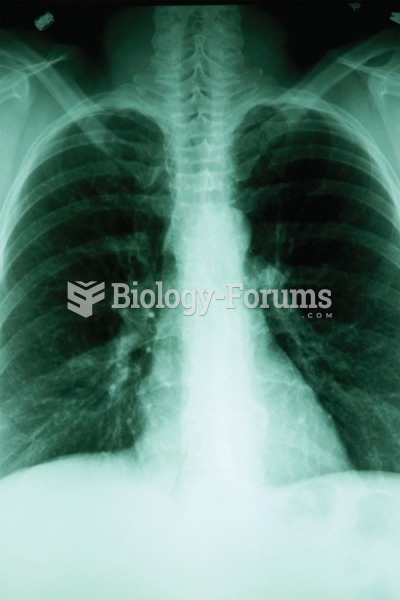|
|
|
More than 34,000 trademarked medication names and more than 10,000 generic medication names are in use in the United States.
In 1835 it was discovered that a disease of silkworms known as muscardine could be transferred from one silkworm to another, and was caused by a fungus.
Vaccines cause herd immunity. If the majority of people in a community have been vaccinated against a disease, an unvaccinated person is less likely to get the disease since others are less likely to become sick from it and spread the disease.
Children of people with alcoholism are more inclined to drink alcohol or use hard drugs. In fact, they are 400 times more likely to use hard drugs than those who do not have a family history of alcohol addiction.
The first documented use of surgical anesthesia in the United States was in Connecticut in 1844.
 Color enhanced X-ray showing a pacemaker implanted in the left side of the chest and the electrode w
Color enhanced X-ray showing a pacemaker implanted in the left side of the chest and the electrode w
 Standing at the head of the table, apply oil or lotion to chest area. Spread lubricant fanning out ...
Standing at the head of the table, apply oil or lotion to chest area. Spread lubricant fanning out ...





